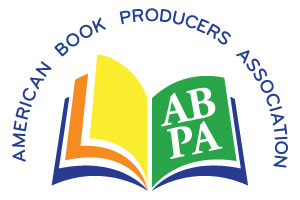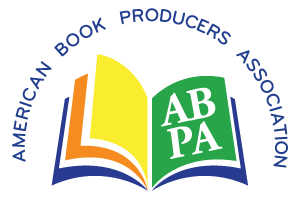About Us
About the ABPA
The American Book Producers Association was founded in 1980 as the trade association for independent book producers, also called packagers, in the United States and Canada. Members of this rapidly growing profession produce, from concept through bound books, a wide variety of titles for trade and other publishers.
For more than 40 years the ABPA has supported and promoted the crucial work of book producers in the publishing industry. Because packagers usually work behind the scenes, educating people about what we do is integral to our mission.
Most book producers have worked in the publishing industry for years and are knowledgeable about every aspect of the publishing process. Producers are generalists within the industry whose daily jobs deal with editing, design, marketing, contracts, finance, printing, and many other functions. They have a keen sense for the demands of the marketplace and are savvy about what is technically feasible.
Book packagers can handle every stage of the publishing process and be counted on to deliver a product on schedule and with the highest level of professionalism.
What Is a Book Producer?
Book producers, also known as packagers, are akin to independent producers in film and television; instead of shows, they make books for publishers, corporations, non-profits, and others. Book producers perform all of the creative and production functions commonly performed by agents and publishing houses, with the exception of marketing, sales, and distribution. Producers typically sell projects to publishers based on a proposal. They produce the book only once the project has been sold. Depending on the arrangement, the producer may deliver as a final product to the publisher a polished manuscript, printer-ready files, or finished books.
Book Producers Are Creative Players
Creating complicated books is a labor-intensive craft that often involves whole teams of writers, editors, designers, illustrators, photographers, researchers, and other specialized talent whose separate contributions must be integrated into a seamless whole. Sometimes it means executing a highly elaborate design, or even incorporating non-print materials such as CDs, juggling balls, or other merchandise into a final product. Often it means working closely with an outside organization to shape a custom, one-of-a-kind title for a special event. Book producers make it their business to devote the focused time, energy, and attention necessary to bring these projects to fruition.
But the book producer’s mastery of complicated books goes well beyond mere execution. Book producers are visionary as well, conceiving and developing the books that they create. They are able to pull together the necessary ingredients to see these visions through. Books created by producers—“packaged books”—cover all the essential subjects: art, medicine, cooking, history, parenting, gardening, sports, popular culture, self-help, and more. They run the gamut of publishing markets, including trade, mass market, educational, juvenile, professional, and reference. And every year some of the most impressive and lucrative titles on the market are packaged books.
Book producers bring their products to market through deals with book publishers. For the most part, producers make these deals based on proposals they have developed and written themselves, selling the publication rights to a book before starting work. This sale, in turn, finances the book’s creation.
Depending on the arrangement, the book packager may deliver to the publisher anything from an edited manuscript to printer-ready files to finished books—and the publisher takes the project from there. Marketing and distribution are virtually always the publisher’s responsibilities.
Functions Typically Handled by Book Producers
- writing the proposal, pitching the project to publishers
- negotiating a contract
- commissioning a writer
- editing the text
- acquiring art or photos
- designing the book
- copyediting, proofreading, indexing
- and often prepress and printing as well.
Why Publishers Use Packagers
Packaged books generally make their way onto publishers’ lists in one of two ways:
- Editors may acquire original submissions from packagers. Like agents, packagers routinely submit book proposals to publishers. As a rule, these constitute some of the smartest ideas around. For this reason, it makes sense to get on a packager’s submission list.
- Editors may hire packagers to develop and execute in-house ideas. Packagers are quite willing to help shape editors’ ideas into viable projects. Teaming up with a packager is often the only way editors can transform solid in-house ideas into actual books. It’s also an excellent way for publishers to exploit their own corporate brands. Book packagers fill many different niches. Each company has its own areas of expertise and working style.
The professional, comprehensive approach of book packagers ensures that these complicated projects will be completed in a timely and efficient manner. We invite you to peruse the American Book Producers Association Member Directory to get a fuller picture of who we are, what we do, and the many ways we can work with the publishing community.

